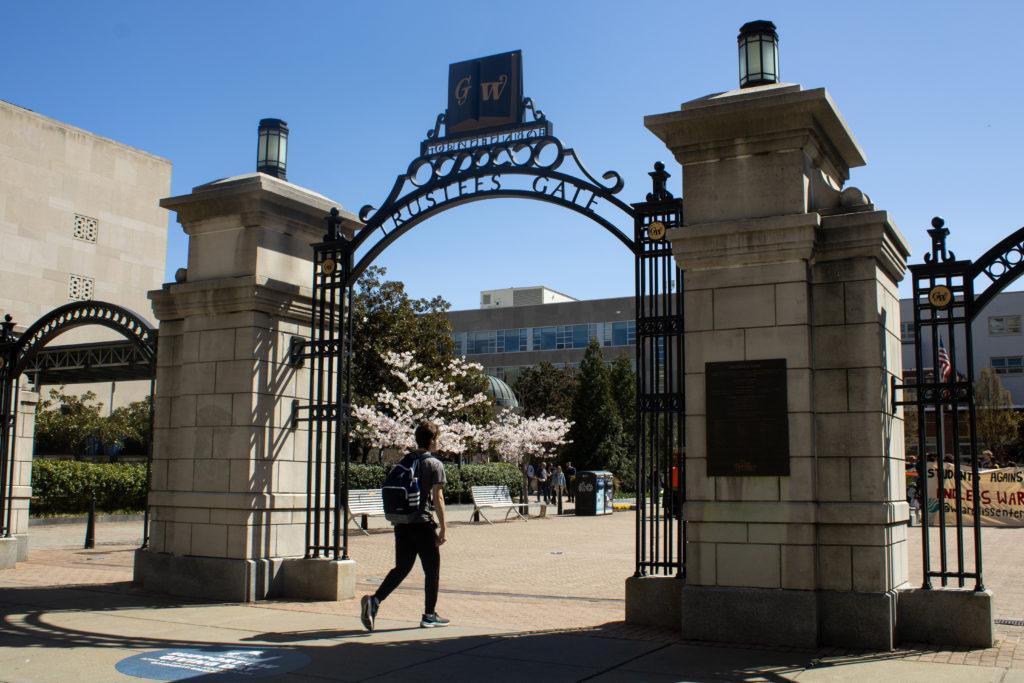Updated: Oct. 23, 2023, at 10:36 a.m.
Staff councilmembers discussed ways to facilitate collaboration with faculty and staff at a Staff Council meeting Friday.
Staff Council President Bridget Schwartz presented Faculty Senate Executive Committee Chair Ilana Feldman to the council, who said the council will be a formal mechanism for faculty and staff collaboration, which she hopes to bolster going forward. Feldman said in the Faculty Senate, the body’s “strongest” work occurs in their standing committees — which brainstorm policies that they then bring to the rest of the senate to spur change in the University — which the council could replicate as a staff governing body.
“They are spaces where there is ongoing collaboration, both in the sense of actually just building communication, knowledge of each other, relationships and therefore some trust but also really working in concrete ways to develop policies,” Feldman said at the meeting.
Feldman said members of the senate and council should reach out to faculty and staff who are not participating in their governing bodies because she’s noticed that some faculty do not engage with the senate. She said staff councilmembers should remind other staff about the governing body’s existence, so they can provide suggestions on what they want the council to accomplish.
“For a new organization like yours, I think as people kind of see begin to see what it is that that comes out of having this people will get more engaged, but some people won’t and that’s just you know, that’s got to be okay,” Feldman said.
The council is in the process of recruiting staff for five committees that focus on diversity, equity and inclusion; service; communications; staff development and recognition; and staff experience. Each committee chair pitched their committee at the meeting, encouraging faculty to reach out if interested. Staff Council Vice President Kim Fulmer announced members of each committee at the council’s July meeting.
Human Resource Management and Development officials also delivered a presentation on their “compensation philosophy” and said market data, employee performance and equity in compensation determine employee salaries.
Annie Hess, the director of compensation, said the University is a “pay-for performance” institution in which high performers are paid high salaries or wages. She said officials also determine pay based on at least 10 federal regulations on compensation.
Hess added that factors like labor availability, special certifications and skills can also influence pay.
“GW is a business,” Hess said. “Our jobs, and what we pay them, should be anchored and influenced based on GW’s business needs and the impact we have and then they should be aligned with our budget planning process.”
Hess said employees can use the Career Path website to explore jobs at GW and managers can use the site to see how employees fit into their organization. She said the site groups jobs together across departments and schools by roles, so employees can understand where other positions stand in the University.
“When we look at our job families and subfamilies, you’ll notice that they’re not departments, they’re not schools, they are functional areas, and they often span multiple schools and divisions, and that’s intentional,” Hess said.
Jennifer Lopez, the associate vice president of total rewards, said HR uses compensation, benefits and a “feedback-rich environment” to retain employees at GW. She added that officials are preparing for new D.C. pay transparency laws to become effective in 2024.
Five D.C. Councilmembers proposed an ordinance that requires employers to disclose the minimum and maximum salary or hourly wage and potential employment benefits.
Michael Kern, a representative for GW Information Technology, said in a comment in the Zoom chat during Lopez’s presentation that it’s “paradoxical” that many of the lower-paying University positions also require transport to campus, compared to positions that pay more but offer virtual work.
“We want to reemphasize certainly providing a meaningful, fair base pay is critical,” Lopez said. “And then also having incentive tools for leaders to be able to consider when an employee does go above and beyond that role.”
Ianne Salvosa contributed reporting.
This post has been updated to correct the following:
The Hatchet incorrectly reported that Hess said GW is a “paper performance institution.” She said the University is a “pay-for performance” institution. We regret this error.





